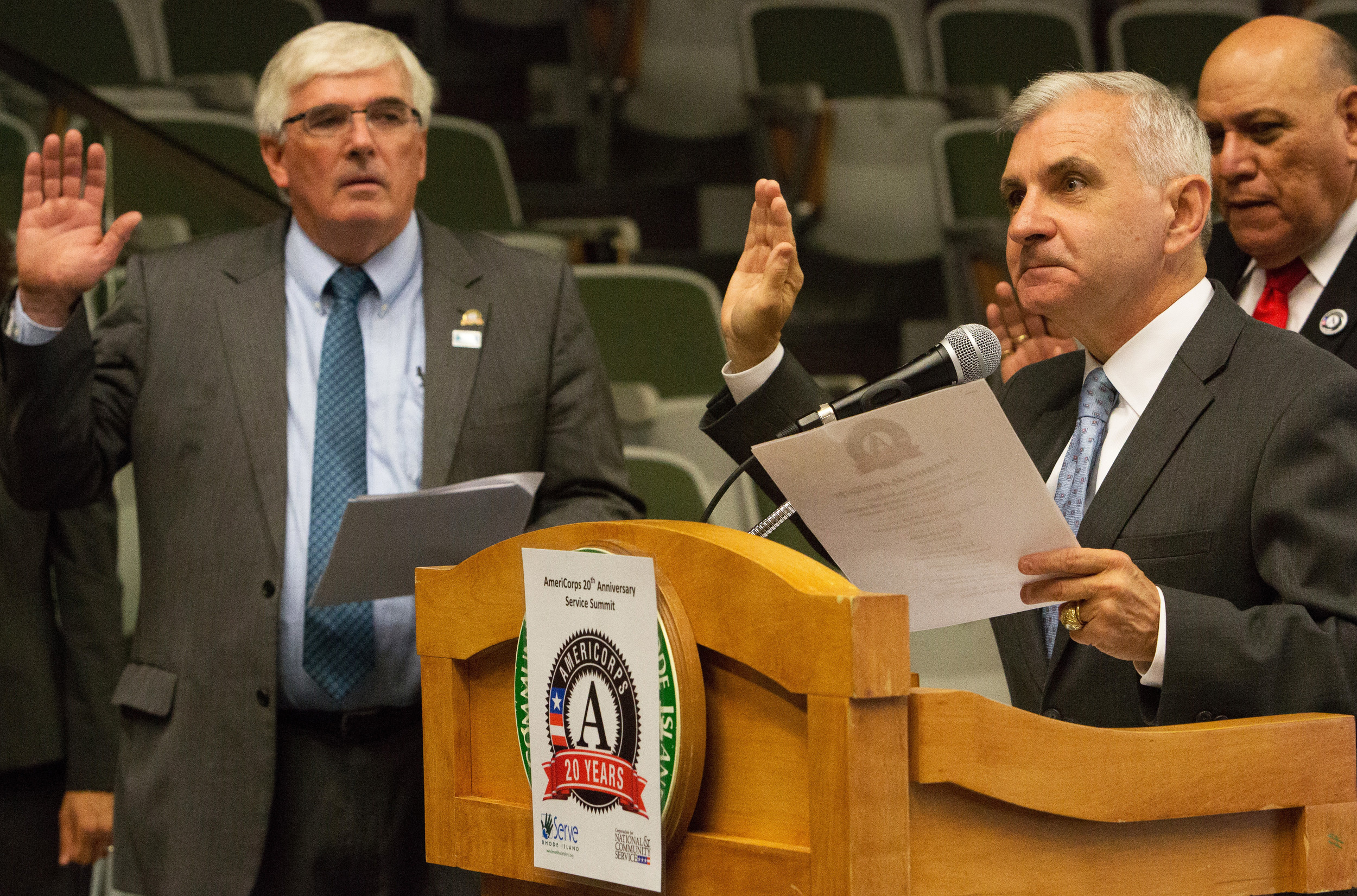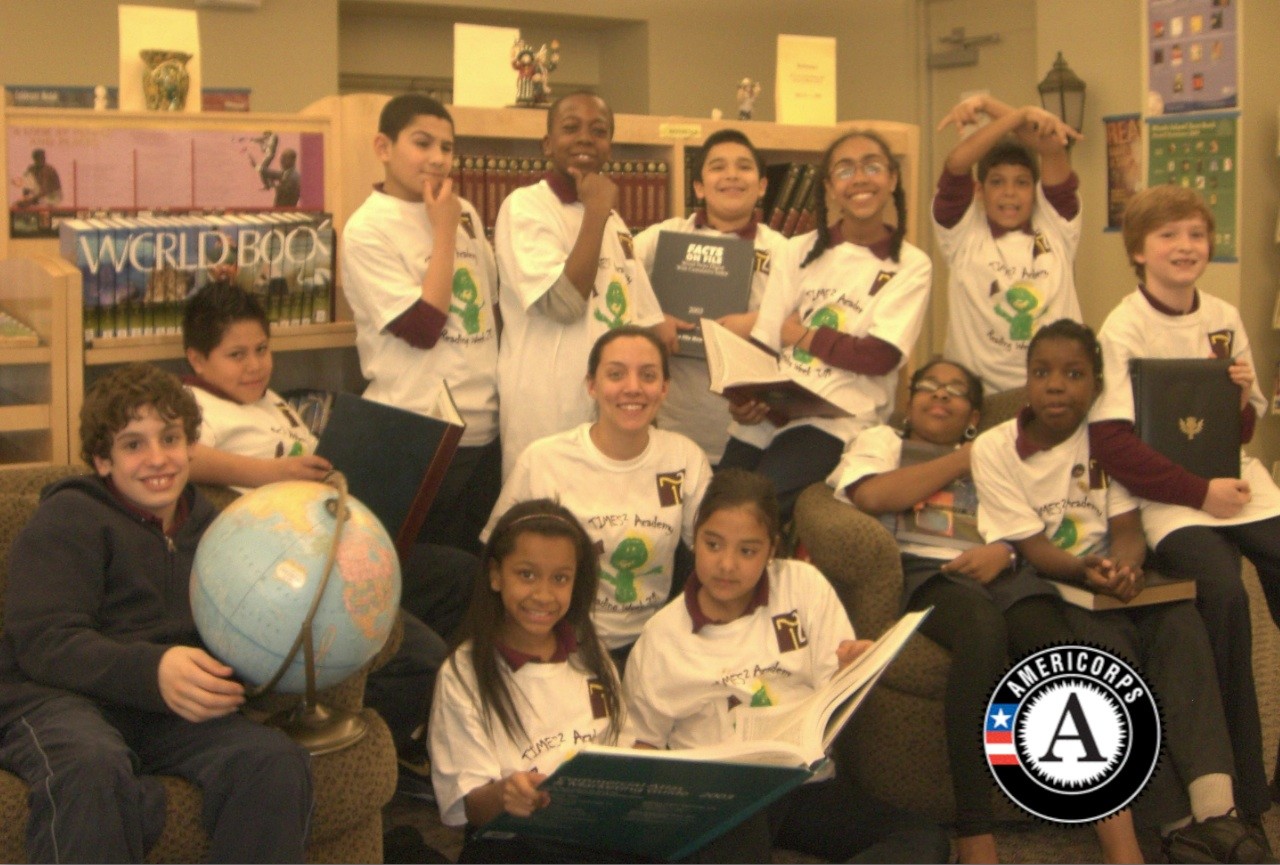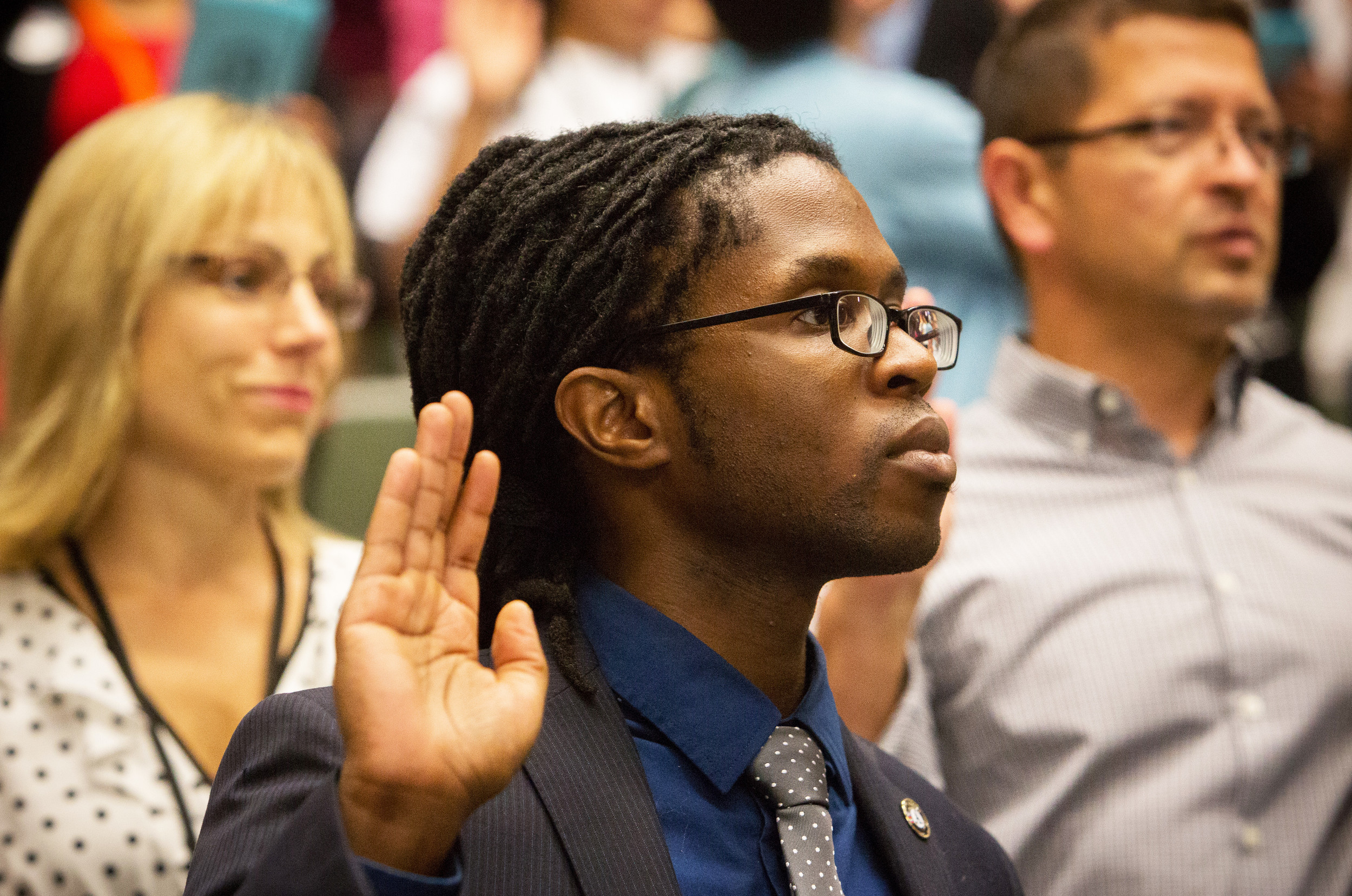Building social capital through volunteerism
Rhode Island celebrates 20 years of AmeriCorps
PROVIDENCE – For many years Rhode Island’s volunteerism rate has ranked near the bottom of all states, while neighboring New England states Vermont, Maine and Connecticut have ranked near the top.
The most recent 2012 figures have our state’s volunteer rate at 23.5 percent, accounting for an estimated 198,720 volunteers.
[Volunteerism is measured each year by a report, Volunteering and Civic Life in America, published by the Corporation for National and Community Service, a federal agency created in 1994 to promote volunteerism and national service, primarily through the AmeriCorps, VISTA and Senior Corps programs.]
While this is arguably a sizeable army of people helping out in the community, we are out-flanked by our neighboring states. Ranked at 39th in the country, Rhode Island’s volunteer rate is far below Connecticut (30.2 percent) and Massachusetts (26.5 percent).
Why is that? Are we a lazier bunch? Are we more apathetic about getting involved with needs in the community than people in our neighbor states? No, not really. Rhode Islanders who can name a dozen people who are model volunteers want to refute this data.
It is, unfortunately, true that we volunteer less, which puts us at a “social capital” disadvantage here in the smallest state. But why do we volunteer less than our neighboring states?
Not answering the call
On Sept. 12, the nation celebrated its 20th anniversary of the start of AmeriCorps by taking five minutes at 11:30 a.m. to hold a simultaneous pledge across the country.
In Rhode Island, we added an afternoon town-hall meeting, “Summit on Service,” at CCRI in Warwick.
The two-hour conversation, which drew more than 200 participants, offered many thoughts and reflections to decipher why volunteerism in Rhode Island lags so far behind the rest of New England and the country.High unemployment rates and low volunteer rates are linked.
In 2013 the country hit a 10-year low in our volunteer rate, according to Greg Baldwin, president of VolunteerMatch, in a recent commentary, reminding us that research showed that people volunteer less when they’re unemployed.
The poor national economy also has hurt nonprofit financial contributions, which has weakened their demand and capacity for volunteers.
The annual Volunteering and Civic Life report has also linked lower state-by-state volunteer rates with higher unemployment rates, suggesting that economic insecurity dampens an individual’s willingness or ability to give of their free time, which may explain why Rhode Islanders, in particular, volunteer less.
The economic benefits of volunteering
Ironically, if more Rhode Islanders did volunteer, we could possibly see lower rates of unemployment the next time a recession hits.
In the 2011 report “Civic Health and Unemployment,” researchers concluded that states with higher rates of volunteerism and civic engagement weathered economic recession better than those with lower rates.
Volunteerism builds social capital, which positively impacts communities in a number of ways. It builds skills, confidence and habits that make individuals more employable and strengthens the social networks for finding jobs. Communities with stronger civic engagement are more likely to have good governments, higher performing schools and are more able to create public policy to address problems.
Perhaps those who could support the promotion of volunteerism to counter the dampening effects of high unemployment don’t realize how much Rhode Island is missing.
If our state enjoyed even Massachusetts’ volunteer rate we would have another 16,222 volunteers working in our schools, and community nonprofits today.
At Connecticut’s rate, we would an astounding 46,232 more people engaged in volunteer service. Can we imagine what this additional number of helpers could accomplish across a wide range of needs in our state?
How can Rhode Island get to these higher numbers and give our state a much greater benefit of volunteer service by and for our own people?
We need to increase our investment of effort and resources to correct this historical weakness in our state. One challenge will be that most elected leaders and philanthropic organizations that could supply financial resources for marketing, promoting and building nonprofit capacity for volunteerism are not convinced that volunteerism and service is an essential element of a healthy community and vibrant economy. Volunteerism is seen as nice but not necessary for strengthening our democracy and civil society.
Civic engagement
Volunteerism is linked to greater civic participation, greater voter participation and a healthier, more vibrant community and economy. In Shirley Sagawa’s The American Way to Change, she asserts that our democracy depends on robust civic participation, including volunteer service. “Studies document that civic engagement points to heightened social capital which in turns leads to higher educational achievement, better-performing government institutions, faster economic growth and less crime and violence,” Sagawa wrote.
Other forms of civic engagement include voting, attending public meetings and writing letters to policy makers and newspapers.
Consider as well the benefits of volunteer service that have been well documented to include improving the health and lives of the volunteers themselves. Seniors who volunteer and are civically engaged, for example, live longer and are healthier physically and mentally.
Consider that volunteers and AmeriCorps members have had a considerable economic and social impact on the Rhode Island community,
In just the past year, Serve Rhode Island’s 14 AmeriCorps programs had the following impacts on the community:
• 1,671 children in early education settings served by AmeriCorps members
• 6,063 K-12 students tutored in public schools
• 13,868 K-12 students participated in after-school programs and school camps run by AmeriCorps members
• 4,325 high school students received college access support
• 5,600 received health screenings supported by AmeriCorps member
• 5,368 lowincome individuals and veterans received social service referrals and financial literacy support
• 2,956 volunteers who served 32,334 hours were leveraged by AmeriCorps members
The economic value of the Rhode Island’s AmeriCorps program since 1994 exceeds $122 million, the wage equivalent of 4,630 individual volunteers who contributed 5.2 million hours of service.
Serving Rhode Island
While we celebrate these accomplishments, there is much more we must do to grow the impact of volunteer service for our state. As the state’s center for volunteerism and service, Serve Rhode Island provides opportunities for both individual and group volunteers. Volunteers find opportunities with our online “Get Connected” portal, which is a virtual marketplace of hundreds of volunteer opportunities hosted by more than 100 nonprofits. Individuals have ready access to this free referral service.
Group volunteer projects have become popular in recent years, with major Rhode Island corporations stepping up to the plate to lend hundreds of employees for a day to clean, paint and landscape some of our oldest and most needy public schools and many nonprofit agencies.
Volunteer teams clean up the environment and help after natural disasters, like the 1,200 volunteers who helped clean up tons of debris in the weeks following Hurricane Sandy in November 2012.
Increasing our volunteer spirit and civic engagement will also create a more informed public, with greater awareness of the needs in the community. Volunteers who have seen for themselves the physical degradation of some of our more struggling urban public schools, for example, will hopefully act on their amplified concern for the hardships faced by students, parents and teachers. These enlightened volunteers will hopefully be vocal and active the next time a moratorium on school improvements is discussed in the R.I. General Assembly.
Increasing volunteerism increases our social capital, which is needed for building a healthier community and state economy. We all will gain greatly from a concerted renewal of community spirit and civic responsibility. As Serve Rhode Island begins its 20th anniversary year, we hope to convene our leaders and volunteers around this recommitment to volunteer service to eliminate our volunteer deficit and address some of our state’s most pressing needs.
Bernard J. Beaudreau is the executive director of Serve Rhode Island








